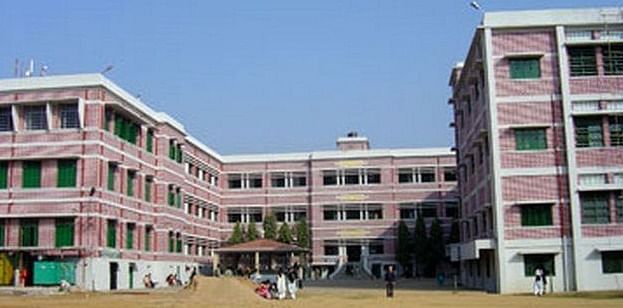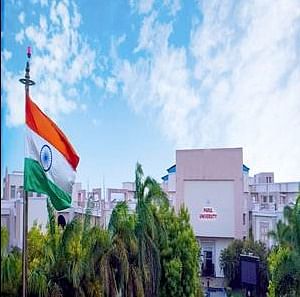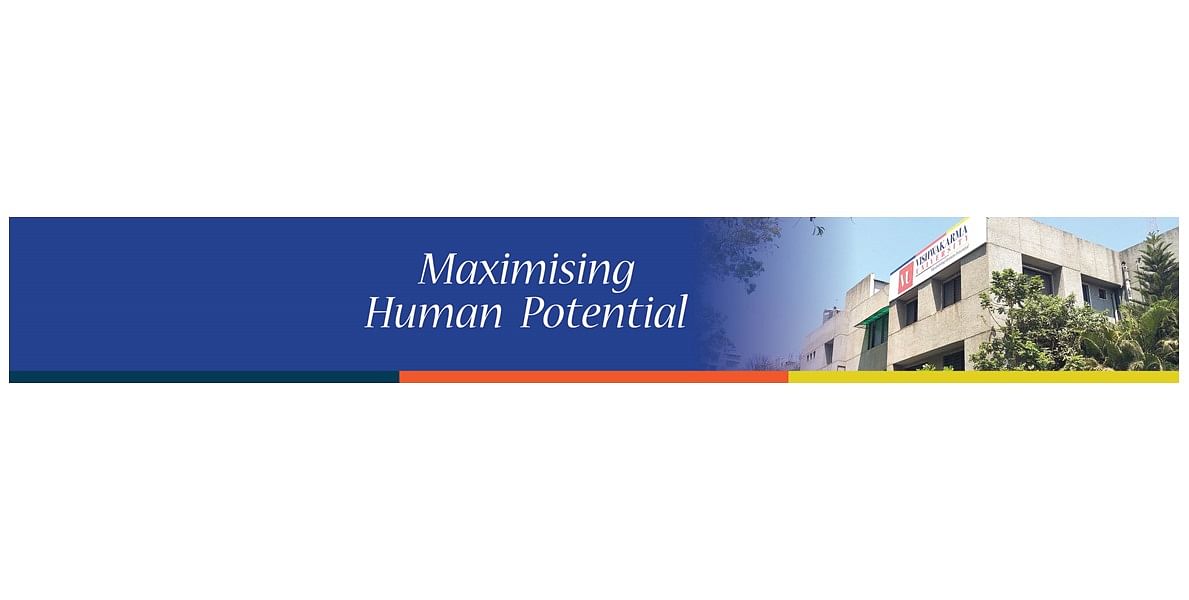M.Sc Big Data Analytics
M.Sc Big Data Analytics is a two-year postgraduate program that deals with the main areas of science of studying raw data to conclude it is known as data analytics. Master of Science in Big Data Analytics offers candidates to set up a career in various areas of Academic Institutions, Education & Research Institutes, Banks, Educational Institutes, Government Offices, Research Laboratories, MNCs, Energy sectors, Technological Companies, Marketing sectors, etc.
Table of Contents
- About M.Sc Big Data Analytics
- Eligibility Criteria for M.Sc Big Data Analytics
- How To Get Admission in M.Sc Big Data Analytics?
- Popular Entrance Exams for M.Sc Big Data Analytics
- Top 10 M.Sc Big Data Analytics Colleges in India
- Fee Structure for M.Sc Big Data Analytics
- Syllabus and Subjects for M.Sc Big Data Analytics
- Why Choose M.Sc Big Data Analytics?
- Scope For Higher Education
- Salary of a M.Sc Big Data Analytics Graduates
- Career Options After M.Sc Big Data Analytics
- Skills That Make students The Best M.Sc Big Data Analytics Graduates
M.Sc Big Data Analytics Course Details
| Degree | Masters |
| Full Form | Master of Science in Big Data Analytics |
| Duration | 2 Years |
| Age | No Age Limit |
| Subjects Required | Data Science, Mathematics, English, Economics, Statistics |
| Minimum Percentage | 50% in Undergraduate Degree |
| Average Fees | ₹90K - 1.8 LPA |
| Similar Options of Study | MBA Data Science and Data Analytics, MBA (Business Analytics), PG Diploma in Artificial Intelligence, PG Diploma in Business Analytics |
| Average Salary | INR 4.5 L to 12 LPA |
| Employment Roles | Data Analyst, Data Developer, Data Architect, Data Deployment Strategist, Data Scientist |
| Top Recruiters | State Street, TCS, Wipro, Deloitte, JP Morgan, Morgan Stanley, Oracle, KPMG, Goldman Sachs, PWC, Accenture etc |
About M.Sc Big Data Analytics
During the Data Science course syllabus, students are given a deep understanding of how individuals and organizations use data analytics to make sense of it. Raw data is often analyzed by data analysts for insights and trends. The course falls under the umbrella of the M.Sc course. Students should ensure to research the Data Science course fees before enrolling in the course.
Also, Check: How to Become a Data Scientist
Eligibility Criteria for M.Sc Big Data Analytics
Master of Science in Big Data Analytics admission is offered to only those students who meet the eligibility requirements. The candidates must have a bachelor's degree in Science, Mathematics, or Computer Technology with a minimum 50% aggregate score in the final examination. There is no age limit for this course. The admission process can be either entrance exam-based or merit-based.
How To Get Admission in M.Sc Big Data Analytics?
Students must ensure that they satisfy the eligibility criteria for Data Analytics in India. M.Sc Big Data Analytics admission 2021 is done through entrance exam scores or on a merit basis. Admission procedures may vary across different M.Sc Big Data Analytics universities in India. Mentioned below are the details of the admission process in general:
How to Apply?
M.Sc Big Data Analytics course details and procedures for admission can be found on the college's official websites. To apply for the course, students must visit the official university admission portal and register for the entrance exam. After that fill the application form by providing the required details.
Selection Process
Admission is strictly offered to only those students who clear the Master of Science in Big Data Analytics eligibility criteria. The list of shortlisted candidates can be availed through the college’s official website or will be informed through email regarding the result and the further admission process.
Popular Entrance Exams for M.Sc Big Data Analytics
Admission to the M.Sc Big Data Analytics course in India is mainly through entrance examinations. Entrance exams for Master of Science in Big Data Analytics are usually conducted at the university level. The most common exams that most candidates apply to are as follows:
A Quick Glance at the M.Sc Big Data Analytics Entrance Exams
To get admitted, students must ensure whether they satisfy the eligibility for the Master of Science in Big Data Analytics. To clear the entrance exam, students should study the exam pattern and syllabus well before time. This will help students in timely preparation for the entrance exams. Listed below is the general pattern for the entrance exams:
- The entrance exam has multiple sections that test different parts of a student's knowledge from Physics, Chemistry, Mathematics, Computer Technology, Logical Reasoning, Quantitative Aptitude, Analytical Skills, General Knowledge, etc
- The examination will be conducted through offline mode or online mode.
- The time duration to complete the paper is 3 hours.
- Paper consists of 150 multiple choice questions carrying 200 marks.
Top 10 M.Sc Big Data Analytics Colleges in India
Various institutes offer M.Sc Big Data Analytics courses. Students can opt for the Master of Science in Big Data Analytics best college depending upon their merit and specialization needed. Some of the M.Sc Big Data Analytics top colleges are listed below:
|
SI No. |
Name of the Institute |
|
1 |
|
|
2 |
|
|
3 |
|
|
4 |
|
|
5 |
Indian Institute Of Information Technology And Management, Gwalior |
|
6 |
|
|
7 |
|
|
8 |
|
|
9 |
|
|
10 |
Fee Structure for M.Sc Big Data Analytics
Master of Science in Big Data Analytics fees range from INR 10,000 - 1 LPA. The fees may vary according to the college or university based on the type of institute, location, infrastructure, faculties, and facilities available. Below listed are the M.Sc Big Data Analytics fees structure of some colleges:
|
Sl. No. |
Name of the Institute |
Average Annual Fees |
|
1 |
Christ University, Bangalore |
INR 2 LPA |
|
2 |
ICFAI Foundation For Higher Education, Hyderabad |
INR 3 LPA |
|
3 |
NIMS University, Jaipur |
INR 50,000 PA |
|
4 |
Chandigarh University, Chandigarh |
INR 1 LPA |
|
5 |
Shoolini University, Solan |
INR 2.5 LPA |
Syllabus and Subjects for M.Sc Big Data Analytics
M.Sc Big Data Analytics is a two-year postgraduate course in data analytics. The M.Sc Big Data Analytics course is a comprehensive study that prepares students to work in the sectors of data analytics that practices deeply into raw data through which analytical solutions are drawn in areas such as Academic Institutions, Education & Research Institutes, Educational Institutes, Government Offices, Research Laboratories, MNCs, Energy sectors, Technological Companies, Marketing sectors, etc.
The subjects related to this course vary according to specializations and the institutes. The syllabus includes theory papers, practical papers, and internships. The compulsory subjects include:
- Introduction to Computer Hardware
- Statistics for Data Science
- Technical Writing & Paper Presentation
- Big Data and Internet of Things
- System Software Concepts
Read More About M.Sc Big Data Analytics Syllabus
Why Choose M.Sc Big Data Analytics?
Students often wonder about M.Sc Big Data Analytics course details before choosing the course. Before deciding on a career, students come across queries like, "What is the M.Sc Big Data Analytics course?" and "Why choose M.Sc Big Data Analytics?”. To clearly understand answers to these questions, we have framed the following three pointers:
What is M.Sc Big Data Analytics All About?
Master of Science in Big Data Analytics is a postgraduate program that deals with providing a deep study about data science and analytics. The M.Sc Big Data Analytics course prepares postgraduates to work alongside private and government tech companies to complete the task. Some elements of the data analytics process can aid a range of endeavours. Individuals and organizations use data analytics to make sense of it. Raw data is often analyzed by data analysts for insights and trends.
What Does an M.Sc Big Data Analytics Graduate Do?
The M.Sc Big Data Analytics postgraduates can work as Professor, Data Scientist, Machine Learning Engineer, Data Analyst, Data Mining Engineer, Data Entry Clerk, Analytics Architect, Business Intelligence Analyst, etc. Many data analytics approaches and processes have been mechanized into mechanical processes and algorithms that deal with raw data and are intended for human consumption.
Data Analyst: A Data Analyst gathers and organizes information about sales figures, market research, logistics, linguistics, and other behaviours. They contribute technical skills to guarantee that the data is of high quality and accuracy and present it in ways that assist people, businesses, and organizations.
Reasons Why M.Sc Big Data Analytics Can Fetch Students a Rewarding Career?
Career prospects for an M.Sc Big Data Analytics greatly vary. It depends on the respective specialization and demand of the course. This course mainly focuses on the study of Data Science and its impact on technology, machinery, software, hardware, programming work which concentrates on all the knowledge of the computing process of an organization.
Career Scope and Options: A M.Sc Big Data Analytics course provides a lot of job opportunities, students who are willing to complete the course can have their careers set as a Professor, Data Scientist, Machine Learning Engineer, Data Analyst, Data Mining Engineer, Data Entry Clerk, Analytics Architect, Business Intelligence Analyst, etc.
Read More About M.Sc Big Data Analytics Jobs
Preparation Tips for M.Sc Big Data Analytics
Some of the course preparation tips for the M.Sc Big Data Analytics course are listed below:
Know The Syllabus And Exam Pattern: To prepare well for the entrance exams the students should be aware of the syllabus, exam pattern, and the research paper and books to study the information required.
Practice Question Papers: Practice solving previous years’ papers to understand the type of questions asked. It also helps to improve and prepare students for the exam.
Take Mock Tests: Solving as many mock tests can help students gain speed and accuracy.
Scope For Higher Education
After completion of an M.Sc Big Data Analytics course, the candidates can choose to take up jobs or can continue with their further studies. An additional degree in the same field improves job opportunities. Obtaining higher education can help graduates learn more about the subject and enter the field of Data Science. Additionally, it can also help them increase their salary. Some higher education options are:
Salary of a M.Sc Big Data Analytics Graduates
The average salary of an employee with a Master of Science in Big Data Analytics is INR 3-7 LPA (Source: Naukri) for freshers. The salaries and annual earnings depend on the specific companies they work for, the methods of practice, expertise, and other related aspects.
Read More About M.Sc Big Data Analytics Salary
Career Options After M.Sc Big Data Analytics
After completion of the M.Sc Big Data Analytics course, the postgraduates can find jobs in areas like Academic Institutions, Education & Research Institutes, Banks, Educational Institutes, Government Offices, Research Laboratories, MNCs, Energy sectors, Technological Companies, Marketing sectors, etc. Clearing exams to make a career further in the Data Analytics sector. Some job roles offered to postgraduates are:
- Data Analyst
- Data Scientist
- Data Architect
- Big Data Engineer
Skills That Make students The Best M.Sc Big Data Analytics Graduates
Some students are interested in learning about computing knowledge and take interest in drawing raw data from the analysis that deals with the smooth processing of a company. Studying different technologies, hardware, software, programming, and operations helps the students to work in different sectors professionally in the future. Some required skills are:
- Problem Solving Skills
- Analytical Skills
- Technical Skills
- Communication
- Decision Making Skills
Top M.Sc Big Data Analytics Colleges
Top Science Entrance Exams
M.Sc Big Data Analytics Fee Structure
FAQs on M.Sc Big Data Analytics
Q: What is Big Data Analytics?
Q: Does B.Sc Big Data Analytics have more scope?
















